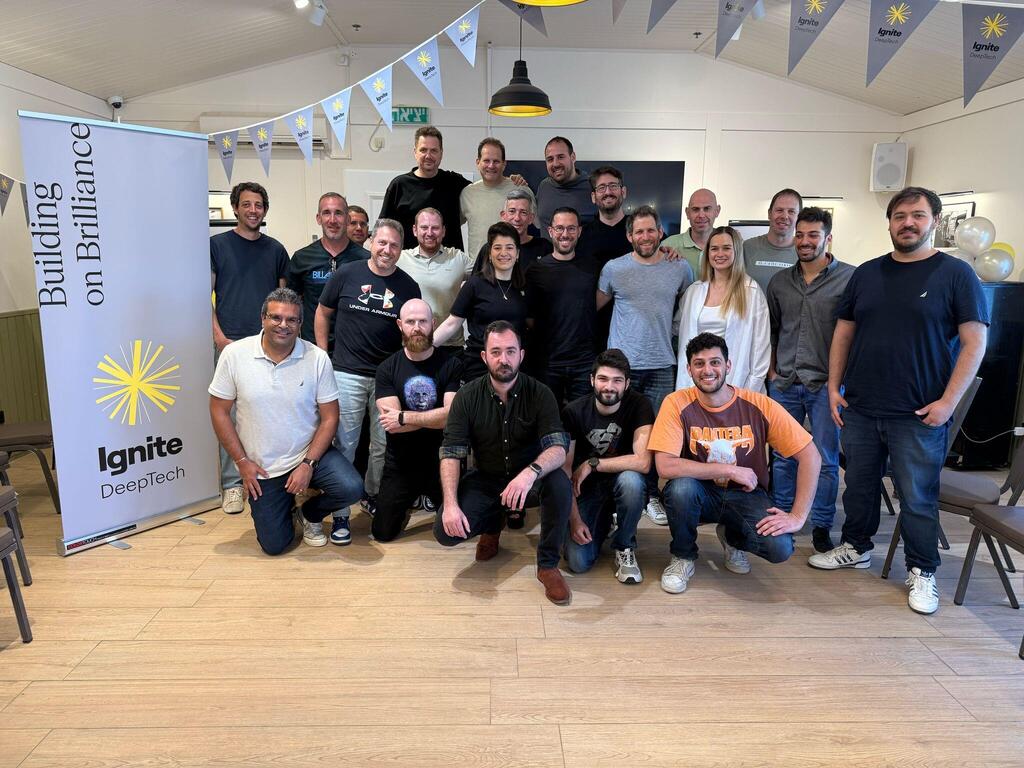
Intel-backed Ignite DeepTech launches first cohort in Israel
Selected startups tackle particle accelerators, road safety, cybersecurity, and more.
Ignite DeepTech, the newly independent accelerator spun out of Intel’s celebrated Ignite program, has officially launched its first cohort. Designed to nurture early-stage startups tackling some of the hardest scientific and engineering challenges, Ignite DeepTech’s inaugural group brings together ten ambitious companies working across fields like cybersecurity, AI infrastructure, quantum technologies, biotechnology, and robotics.
The 10 startups were selected from a pool of 258 applicants for the intensive three-month program, which partners with Intel and other multinational corporations. The companies span a wide range of fields, from quantum computing and AI infrastructure to biotechnology, advanced drones, and particle accelerator technologies.
Ignite DeepTech builds on five years of experience from the Intel Ignite program, which helped more than 200 startups across Israel, Europe, and the U.S. raise billions of dollars and achieve notable exits. But the new initiative takes a sharper aim at early-stage companies pursuing complex, long-term innovations—those often overlooked in favor of faster, consumer-facing tech.
"The new Ignite model presents opportunities—expanding our impact by connecting with more multinational companies in Israel, leveraging the country’s strong deep tech talent pool, and diversifying local tech bets," said Alon Leibovich, Managing Director of Ignite DeepTech. "We expect the deep tech sector to experience explosive growth in the coming years, tackling real-world challenges like spacecraft, robotics, energy, and more."
The startups selected for the program reflect the ambition of the initiative. They include DYM Sense, which is developing non-invasive alcohol detection technologies aimed at revolutionizing road safety, and MNDL Bio, which uses AI to optimize protein production for companies working with recombinant DNA technologies. Another, SkyPulse Technologies, offers a flexible, high-performance drone platform designed for affordability and versatility in critical missions.
In cybersecurity, startups like Twine Security, Jazz (currently operating in stealth), and Huskeys are tackling rapidly evolving threats with AI-driven solutions. Meanwhile, in the world of AI infrastructure, companies like Impala.ai, DataFlint, and Troup AI are seeking to reshape how data is processed and how large language models are deployed at scale.
Adding a particularly futuristic touch, Particle Lab aims to lead the global particle accelerator market through a new acceleration architecture.
The ten startups chosen have already raised an average of $7.2 million each at the Seed stage, suggesting that investors are betting heavily on deep tech’s next wave even before many of these companies have finished building their first products.
According to Ignite DeepTech, the selection process was rigorous, involving 145 evaluators—half from venture capital firms and half from tech corporations, program alumni, and broader ecosystem leaders.
Tzahi Weisfeld, VP at Intel Global and Chairman of Ignite DeepTech, framed the program not merely as an accelerator but as part of a much larger national strategy.
"After fourteen years of building the world’s best corporate accelerator, we are opening a new chapter—bold, ambitious, and national—in collaboration with the state and leading global corporations," Weisfeld said. "This is not just another program; it is a national infrastructure for deep innovation."














